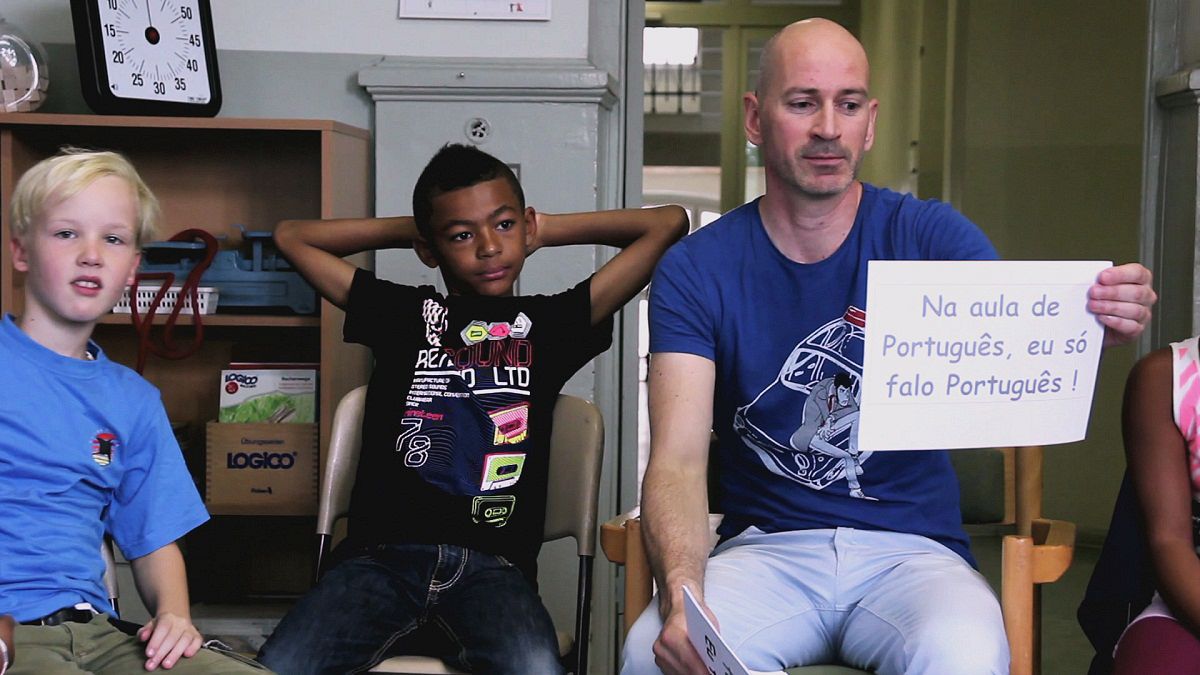Education around the world is changing and flourishing. From some of the best academic institutions with worldwide reputations to the smallest and most isolated places on earth, students are pushing the limits like never before.
But how do students balance international experience with preserving their own identity and culture?
In this edition of Learning World, we take a look at three very different educational establishments to find out.
Berlin’s special bilingual schools
Teacher Sofia Ferreira starts her new working day at Neues Tor elementary school in central Berlin. But this institution is not like other schools. More than 20 different nationalities are to be found here. From first grade onwards, classes are bilingual: in both Portuguese and German.
Sofia says the kids come from all over the world, making it a truly global school.
The school is part of the ‘European Schools’ system, where kids choose their bilingual education from nine different languages.
Classes are made up of native speakers of both languages and teachers come from Portugal, Cabo Verde, Angola and Brazil.
The principal at Neues Tor acknowledges certain conflicts arising from cultural differences but said he sees this as a positive challenge instead of a burden.
Breaking new ground in Denmark
Thirty students from all over the world have been selected to participate in the MA of Anthropology of Education and Globalisation this year in a two-year programme, run by the Aarhus University in Denmark.
For the first time it is focusing on the anthropology of education as a sub-field within anthropology.
Candidates will not just get a global perspective on education but also study concepts like the so-called ‘global knowledge economy’.
Assistant professor Gritt Nielsen says that there is a trend for politicians and researchers to back reforms in higher education to maintain a competitive edge in the current economy.
His colleague Johnny Melkjorsen says it is hard to keep up with the fast rate of global progress, which also makes it an interesting challenge to be a teacher right now.
Candidates specialise in several areas and are expected to do anywhere between three and five months field study experience abroad on a topic of their own choice. After this, they are qualified to work in international organisations.
Guatemala’s ‘volcano’ school
Learning World looks at a project connecting students in remote villages to the outside world. We explore how it maintains the delicate balance between local and global practices.
Santa María de Jesús is a remote village in the highlands of Guatemala with fewer than 15,000 people. It lies on the slopes of a volcano. Aside from the bi-weekly market, it looks like the land that time forgot. Most of its isolated youth get little education.
But a new school – called Kemna’Oj (meaning ‘Weaving minds, weaving knowledge’ in the local Mayan-origin language) aims to change that, by giving students the tools to succeed in a more interconnected world.
The school was set up by donations from the US-based 'From Houses to Homes' charity, which is headed by Judith Baker. She says access to the school’s PCs makes students more aware of what is happening around the world. The hope is this will encourage them to stay on in education.
Kemna’Oj’s principal, Maria de los Angeles Jimenez Rosales, says the children represent change and development in the community. She wants to create a new environment where they can be role models to inspire change within their families and the community.
If you, your children, or someone you know has benefited from a similar education experience, please share that with us on our social media pages.
